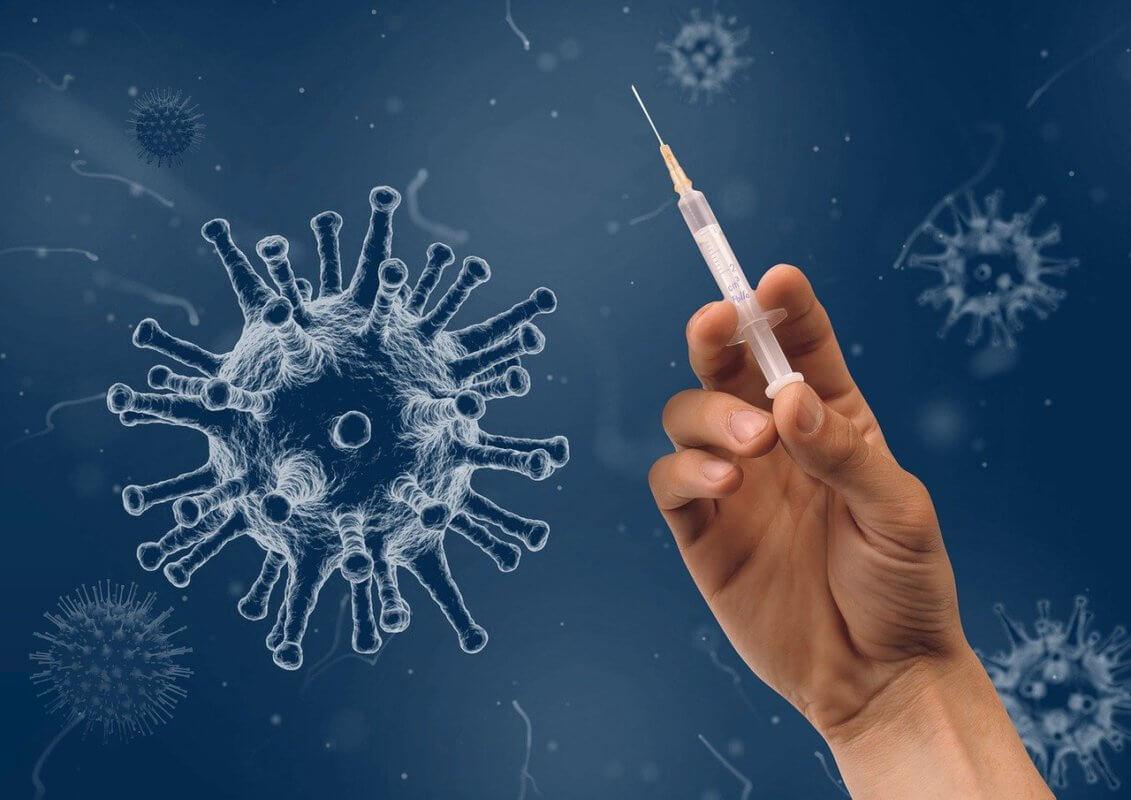Sanofi, a leading pharmaceutical company, has dropped $2.7 billion to acquire Translate Bio, an mRNA research company, due to the potential of mRNA for cancer therapy, as well as the progress made by BNT and Modena on mRNA cancer vaccines. As medicine evolves, vaccines are no longer limited to disease prevention, but are now moving into the field of cancer treatment.
What is a cancer vaccine? How does it work?
Cancer vaccines, as the name implies, are vaccines used to prevent or treat cancer. Both preventive and therapeutic vaccines use antigens injected into the body so that the body’s immune cells recognize them and then react to eliminate them to prevent or cure the disease.
However, the antigens on tumor cells may also be present on normal cells, so sometimes the immune system treats the tumor as normal cells and does not attack the tumor cells. A cancer vaccine uses Tumor-Associated Antigens (TAAs) to identify cancer cells and eliminate them.
In contrast to normal vaccines, cancer vaccines are custom-made to meet the needs of patients since the special antigens on cancer cells are different. When the dendritic cells and natural killer cells in the immune system detect these specific antigens, they start to remove the cancer cells.
Cancer vaccines include partial cancer cells, dendritic cells, DNA cancer vaccines, and mRNA cancer vaccines, which are used to trigger the immune system to target the antigen of the tumor and to attack the cancer cells under optimal conditions (without affecting normal cells).
How is a cancer vaccine made?
Here we introduce a way to make a cancer vaccine by taking the surface antigens of cancer cells and modifying them into antigens that can be recognized by immune cells, and using these antigens to stimulate the immune system in order to destroy the cancer cells.
Currently, cancer vaccines are being developed in the following areas: prostate cancer, lung cancer, breast cancer, colon cancer, skin cancer, and so on. In addition, appropriate adjuvants are required to activate the antigen-presenting cells (APCs) and to mount an immune response. BCG, an aluminum-alumina emulsifier, has been clinically licensed and used. The advantage of cancer vaccines is that side effects are minimized or not even noticeable.
Examples of cancer vaccines

The following is an introduction to cancer vaccines in two major directions:
- Traditional Prophylactic vaccines: Traditional prophylactic vaccines are used to treat a disease by injecting antigens into the body to identify antibodies. Common examples include: Engerix-B, Cervarix, GARDASIL。
- Novel therapeutic vaccines: Novel therapeutic vaccines designed to fight cancer cells already present in the body. Examples include:
- PROVENGE (Sipuleucel-T) 🔗: In April 2010, the U.S. Food and Drug Administration approved the first therapeutic vaccine, a new treatment for prostate cancer. PROVENGE is an autologous cellular immunotherapy treatment that works by stimulating the patient’s own immune system in order to fight the cancer.
- The PROVENGE procedure is as follows: First, the patient’s blood is run through the machine in a process called Leukapheresis, in which human immune cells are collected. These immune cells are exposed to specific proteins that stimulate the immune cells to fight against the prostate cancer cells. These immune cells are then delivered to the patient’s body to treat the prostate cancer.
- T-VEC (Talimogene Laherparepvec ): T-VEC is a melanoma treatment that increases immunity by deleting the neurotoxic gene from the herpes virus and deleting the ICP47 gene, and increases the expression of the immune boosting protein GM-CSF, which increases the immune response of T cells against the tumor. In a phase III clinical trial for advanced melanoma, T-VEC has been shown to have good performance in Durable response rate, Objective response rate and Progression-free survival.
- PROVENGE (Sipuleucel-T) 🔗: In April 2010, the U.S. Food and Drug Administration approved the first therapeutic vaccine, a new treatment for prostate cancer. PROVENGE is an autologous cellular immunotherapy treatment that works by stimulating the patient’s own immune system in order to fight the cancer.
Side effects of cancer vaccine?
Side effects of the cancer vaccine that are similar to flu symptoms include: fever, headache, nausea and vomiting, and muscle and joint pain. If you have any of these symptoms, you should pay extra attention to them and notify your doctor. In severe cases, medical treatment is recommended.
The cancer vaccine dilemma
At present, development efforts are focused on mRNA vaccines. Yet, cancer vaccines still face multiple challenges: First, can mRNA vaccines generate an immune response? Second, do we have the right antigen response? Furthermore, how effective is the vaccine?
The human immune system is quite complex, and in reality, although it can prolong the lives of some cancer patients, it is not effective for everyone. Thus, experts believe that mRNA cancer vaccines should face a challenge. Cancer Fund UK’s Godfrey also pointed out that all the different immunotherapies currently available work for some people, but not for others. Moreover, current medical technology is still unable to predict where mutations will occur, so it is difficult to vaccinate people against cancer.
Conclusion – Cancer vaccine is not a panacea
Cancer vaccines are a promising development and trend for the future treatment of cancer, and more and more major companies are investing their research efforts in this field. But cancer vaccines are not a panacea, and experts are not sure when the golden age of such vaccines will come.
For more articles on this topic, please see:
References:
- Vaccine Therapy for Cancer 🔗
- Cancer Vaccines: Preventive, Therapeutic, Personalized 🔗
- Will there be an mRNA vaccine for cancer? 🔗
- Prescribing Information for PROVENGE 🔗
- Questions and Answers – Provenge 🔗
- Bommareddy PK, Patel A, Hossain S, Kaufman HL. Talimogene Laherparepvec (T-VEC) and Other Oncolytic Viruses for the Treatment of Melanoma. Am J Clin Dermatol. 2017;18(1):1-15. doi:10.1007/s40257-016-0238-9 🔗

